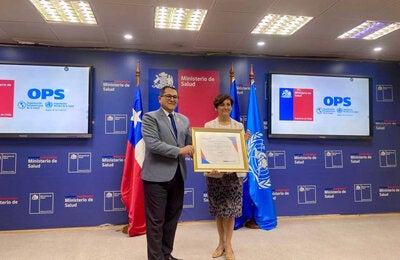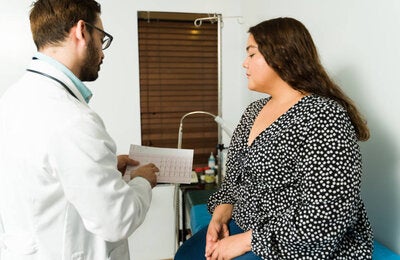Washington, DC, 26 May 2017 (PAHO/WHO) - The celebration of the International Day of Action for Women's health finds the Region of the Americas and the Pan American Health Organization (PAHO) at the beginning of the implementation of the Global Strategy for Women's, Children's and Adolescents' Health 2016-2030.
This Strategy, driven by the United Nations, will contribute to the fulfillment of the 2030 Agenda for Sustainable Development and the Sustainable Development Goals (SDG), particularly those related to people in conditions of vulnerability.
Leaving no girl or woman behind in terms of surviving, means avoiding deaths frompreventable causes related to pregnancy and childbirth, as well as by breast and uterus cancers, and infections such as HIV, malaria or tuberculosis. Also it means reducing deaths from chronic diseases. Furthermore the strategy seeks to eliminate violence against women and girls, including intimate partner violence and femicide that are serious public health problems in the Region.

Thriving, in a socio-institutional and cultural context of well-being for everyone, means ensuring that no girl or woman is left behind in universal access and universal health coverage, guaranteeing the respect for their rights to achieve the highest possible level of health and well-being. On 28 May we make a special appeal to achieve comprehensive care in sexual and reproductive health, including family planning and access to information on sexuality. Reduce gender, generational and ethnic inequalities as well as access to universal health coverage inequities, is a priority task to thrive towards well-being.
Leaving no girl or woman behind also involves transforming harmful social practices, stereotyped models of being a woman and being a man, and violent and authoritarian forms of relationships that have been established for hundreds of years and which must be replaced.
This 28 May, PAHO seeks to raise awareness that health not only requires universal access to quality services, but also that women can finish primary and secondary educations, as well as having the option to access free tertiary education according to their interests. It is necessary to also ensure the conditions that will enable them to have economic autonomy, and to receive the same remuneration as men for equal work.
Further, it is necessary to begin to recognize and remunerate the care work that performed mostly by women in the Region, and take measures that will ensure equal access to all development benefits and at all levels of participation, to exercise their rights without exclusions.
Finally, improving quality of life means reducing all forms of discrimination and violence against women and girls in order to move towards more just and equitable societies. It is a matter of commitment, is a matter of rights, to leave neither girls nor women behind.



